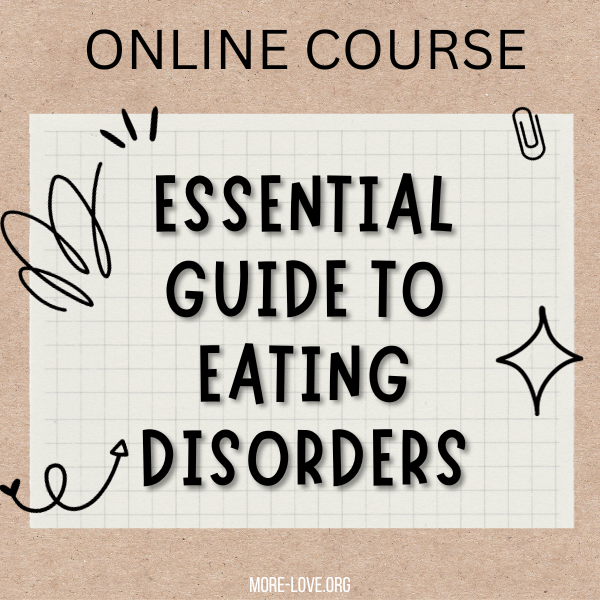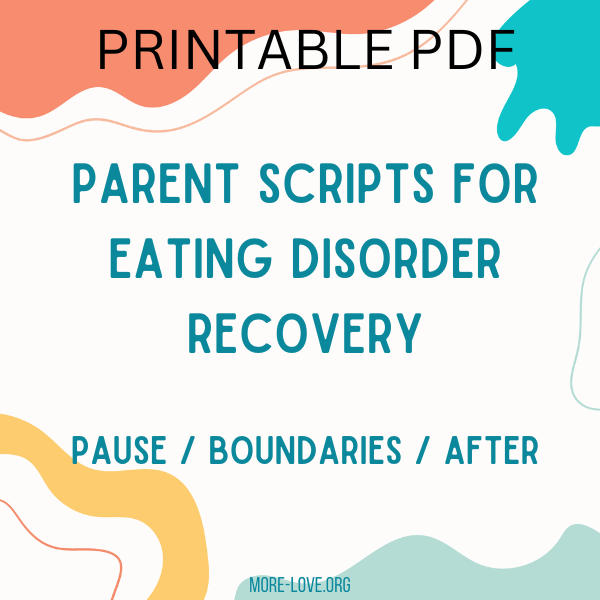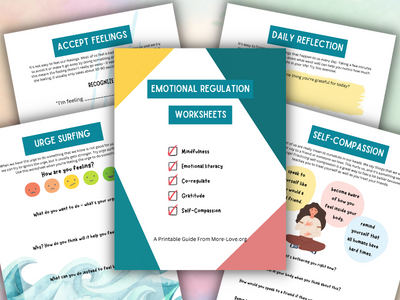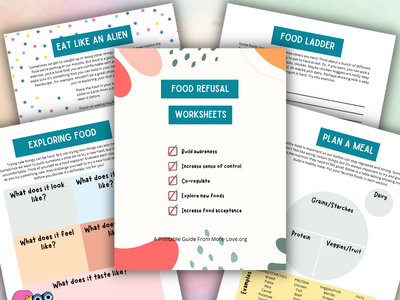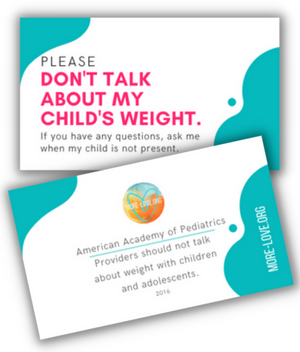
Get resources and support to help you parent when your child has an eating disorder
Being a parent through eating disorder treatment and recovery is definitely best done with support and guidance! Most parents feel overwhelmed and frustrated by the process, and they are often left in the dark about what’s going on and what they’re supposed to do.
This is frustrating, especially since when parents understand eating disorders, build new skills, and get support during eating disorder treatment, they make a huge difference in recovery. In fact, you can make the single biggest impact on your child’s recovery.
One of the reasons eating disorders are so hard to treat is that treatment often leaves out the most important people in a child’s life: parents! Here are some resources and support to help you navigate this.
Parent-Friendly ❤️ Neurobiology ❤️ Attachment ❤️ Non-Diet ❤️ Health At Every Size®
Parenting a child with an eating disorder is anything but easy. Support, training, and guidance on how to support eating disorder recovery will make you more successful. Learn new skills and get the support you need to stay strong as you face this tremendous challenge. Getting support means you’re less likely to suffer from burnout and will keep you hopeful and confident. Here are some free resources that will help you parent when your child has an eating disorder:
Q: What can I do if I’m concerned my child has an eating disorder?
A: The first thing you want to do is understand the signs and symptoms of an eating disorder. Eating disorders are complex and rarely look the way they’ve been presented to us in the media. The most important signs and symptoms of an eating disorder you should be looking for include:
- Food restriction and aversion
- Binge eating and secret eating
- Purging, including vomiting and laxative use
- Over-exercise
- Negative body image
- Obsessive thoughts about body, weight, and food
Next, you want to learn everything you can about your child’s symptoms and educate yourself about treatment options. Parenting a child who has an eating disorder is challenging, but you are up for this! Getting support as a parent who has a child with an eating disorder is essential. Gather your resources and prepare yourself for an intense but deeply worthwhile journey.
Online Course: Essential Guide to Eating Disorders
An online course for parents who have kids with eating disorders
- The essential knowledge you need to parent your child with an eating disorder
- How to create a pro-recovery home
- What to do and what not to do when your child has an eating disorder
Q: How do I talk to my child about my concerns that they have an eating disorder?
A: If you have concerns that your child has an eating disorder, you need to be thoughtful and intentional about how you talk to your child about them. An eating disorder is a complex and nuanced disorder that requires professional treatment and ongoing support from family members. How you talk to your child about your concerns will make a significant difference in your child’s perception of your ability to cope with their eating disorder treatment.
Printable Guide: How To Talk To Your Child If You Suspect They Have An Eating Disorder
(or if you think they’re having a relapse)
- How to have your first conversation about your suspicions (and all the ones that come afterwards!)
- How to respond when your child says they don’t have an eating disorder
- Resource sheets to support parents facing a child’s eating disorder
Q: What Can I Say When I Need To Set Boundaries With My Child Who Has An Eating Disorder?
A: When your child has an eating disorder it’s very important that you set and uphold clear boundaries. You need to try to pause your child’s eating disorder behaviors when they happen, but doing so often results in massive explosions and meltdowns. The important thing for you is to set clear expectations and uphold them, no matter what. Often what happens is parents set expectations and boundaries, but when the child complains and gets upset about them, the parents give in. This makes perfect sense, but it sets everyone up for increasingly volatile and exhausting interactions. Get some parent support so that you can stay calm and confident when your child has an eating disorder.
Parent Scripts For Eating Disorder Recovery
- Pause eating disorder behaviors without creating a massive meltdown
- Set boundaries and hold steady when your child reacts to them
- Review eating disorder behaviors after they have happened to build understanding and connection
Free Parent Resources for Eating Disorders

Worksheets Parents Can Give Kids With Eating Disorders
Therapy & Coaching Resources for Parents Who Have Kids With Eating Disorders
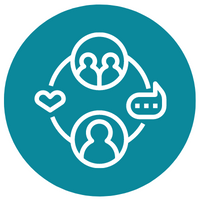
It makes sense if all your focus right now is on your child’s treatment. However, if you work on yourself, you will impact your child’s recovery. Your own patterns of behavior and psychology can either reinforce the eating disorder or supercharge recovery. After all, eating disorders are highly responsive to the environment, and you are an essential part of your child’s environment.
You have a tremendous impact on your child’s likelihood of recovery. What you do can motivate or de-motivate your child. Parenting a child with an eating disorder is advanced parenting, and you’re more likely to succeed if you have professional guidance from a therapist or parent coach.
Parent Training for When Your Child Has an Eating Disorder

You’re going to need advanced parenting skills in connection, feeding, and communication. You’ll want to learn how to motivate your child to make a very difficult behavior change. And you’ll probably have to interact with your kid’s big, scary feelings of anger, sadness and fear.
How you respond when they’re freaking out about food or their body image makes a difference. Eating disorders are tricky, and advanced parenting skills for handling eating disorder tantrums and stonewalling require specialized training. Find local or online courses to help you build your confidence.
Support Groups for Parents Who Have Kids With Eating Disorders
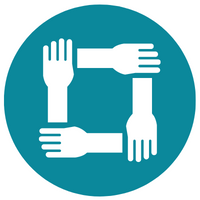
Find a parent support group, Facebook group, or join F.E.A.S.T. to learn from and get support from other parents who have kids with eating disorders. Sharing your struggles with other people who are going through the same thing can make you feel less alone and be a wonderful balm for your soul. It can give you the strength you need to face another day of eating disorder treatment with the best you have to give.
Friends & Family

You may feel uncomfortable about sharing what your family is going through with your friends and family. And your child may demand that you not share their mental health condition with others. But at the same time, you need emotional support more than ever.
Learn how to respectfully talk about the eating disorder while upholding good boundaries and without blaming or shaming your child. This will allow you to get the support you need without stepping in a hornet’s nest.
Keep in mind that eating disorders thrive in secrecy, so keeping it a secret is usually not the best approach. That said, you’re going to want to be thoughtful and strategic about how you talk about the eating disorder with others.
Books

- Brain-Body Parenting: How to Stop Managing Behavior and Start Raising Joyful, Resilient Kids, by Mona Delahooke
- The Power of Showing Up: How Parental Presence Shapes Who Our Kids Become and How Their Brains Get Wired by Daniel J. Siegel and Tina Payne Bryson
- Anxious Kids, Anxious Parents: 7 Ways to Stop the Worry Cycle and Raise Courageous and Independent Children by Lynn Lyons and Reid Wilson
- The Highly Sensitive Child: Helping Our Children Thrive When the World Overwhelms Them by Elaine N. Aron
- Intuitive Eating, 4th Edition: A Revolutionary Anti-Diet Approach by Evelyn Tribole and Elyse Resch
- When Your Teen Has an Eating Disorder: Practical Strategies to Help Your Teen Recover from Anorexia, Bulimia, & Binge Eating, by Lauren Muhlheim, Ph.D.
- How to Nourish Your Child Through an Eating Disorder: A Simple, Plate-by-Plate Approach to Rebuilding a Healthy Relationship with Food, by Cassey Crosbie, RD & Wendy Sterling, RD
eBook

Non-Diet/Health At Every Size® Fact Sheets, Guidelines, and Scripts
- Fact Sheets About Weight Stigma, Diet Culture, Kids and Diets, and More
- Non-Diet Parent Guidelines
- Non-Diet Parent Scripts About Responding to Fat Talk, Diet Talk, and More
- What to Say/Not Say When Talking About Bodies and Food

